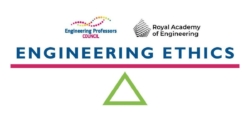 You are an engineering consultant working for a commercial heat pump company. The company handles both the manufacture and installation of heat pumps. You have been called in by a county council to advise and support a project to decarbonise both new and existing housing stock. How do you go about this?
You are an engineering consultant working for a commercial heat pump company. The company handles both the manufacture and installation of heat pumps. You have been called in by a county council to advise and support a project to decarbonise both new and existing housing stock. How do you go about this?
This is the dilemma presented in our Engineering Ethics Toolkit case study Feasibility of installing heat pumps at scale to reach net zero.
This case study offers students an opportunity to practise and improve their skills in making estimates and assumptions. It also enables students to learn and practise the fundamentals of energy pricing and link this to the increasing issue of fuel poverty. Fundamental thermodynamics concepts, such as the second law, can also be integrated into this study.
We’ve provided this, and other case studies, for you to use and adapt in your teaching. We also have a growing library of guidance articles available to support you in your teaching, and an interactive Ethics Explorer to get you started.
Want to contribute your own content to the Ethics Toolkit? Get involved here.
 You are an engineering consultant working for a commercial heat pump company. The company handles both the manufacture and installation of heat pumps. You have been called in by a county council to advise and support a project to decarbonise both new and existing housing stock. How do you go about this?
You are an engineering consultant working for a commercial heat pump company. The company handles both the manufacture and installation of heat pumps. You have been called in by a county council to advise and support a project to decarbonise both new and existing housing stock. How do you go about this?